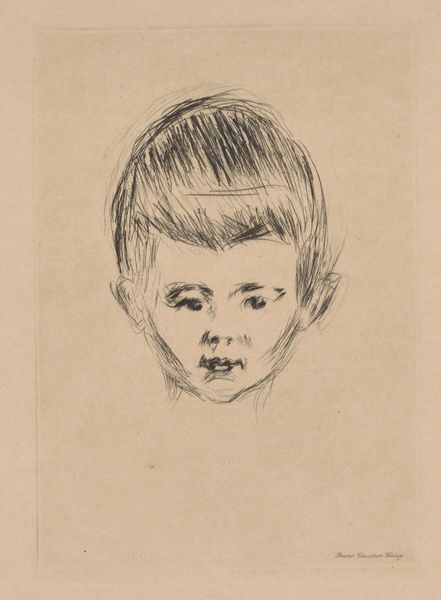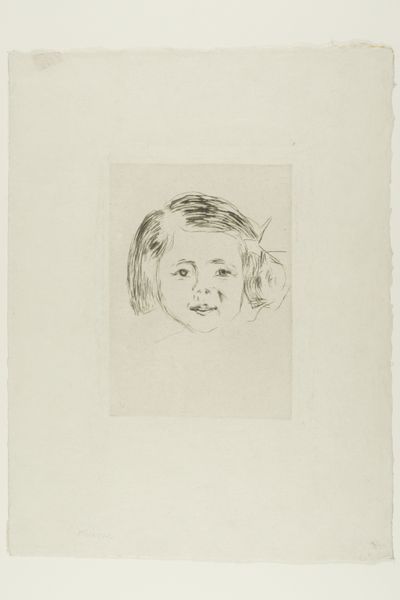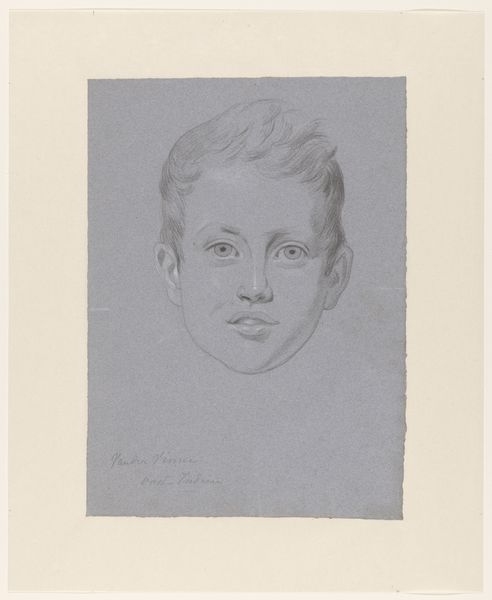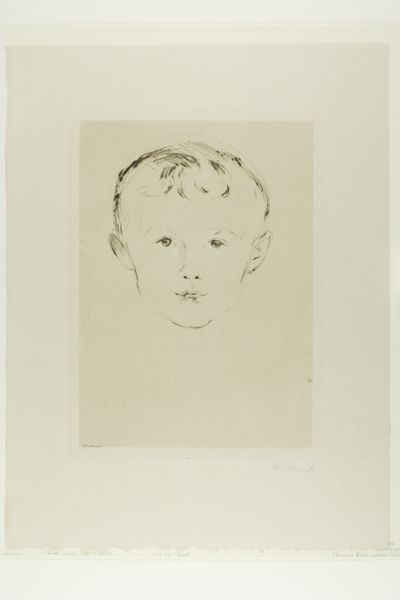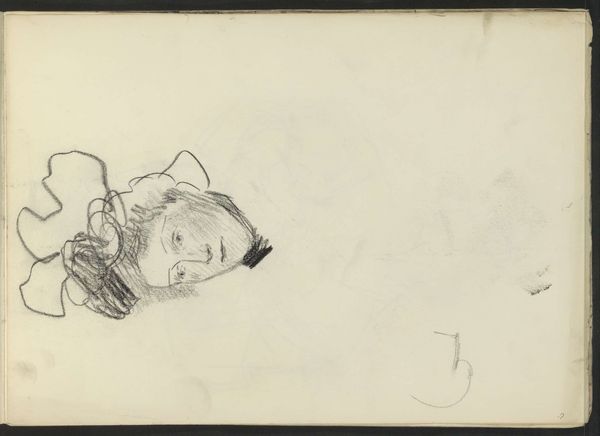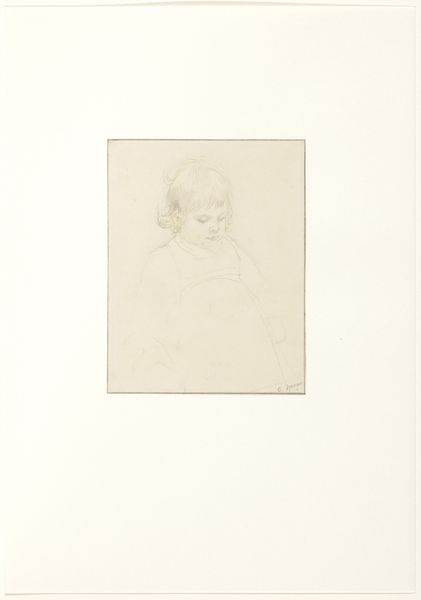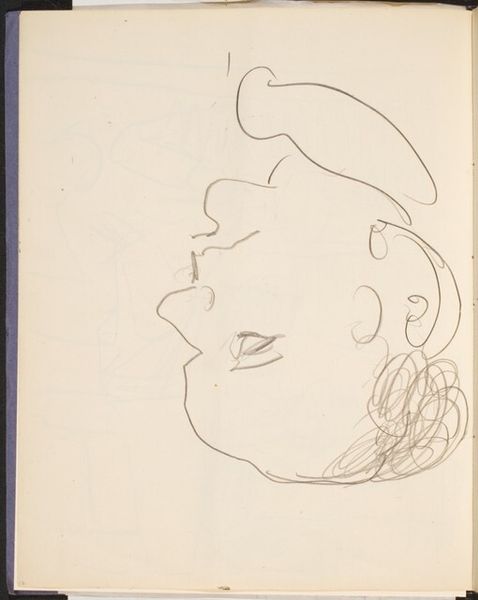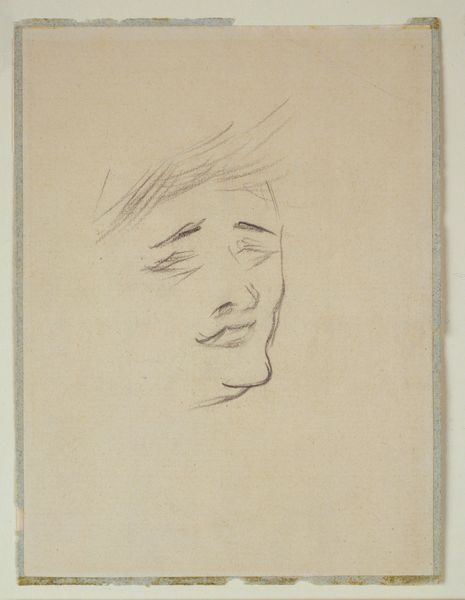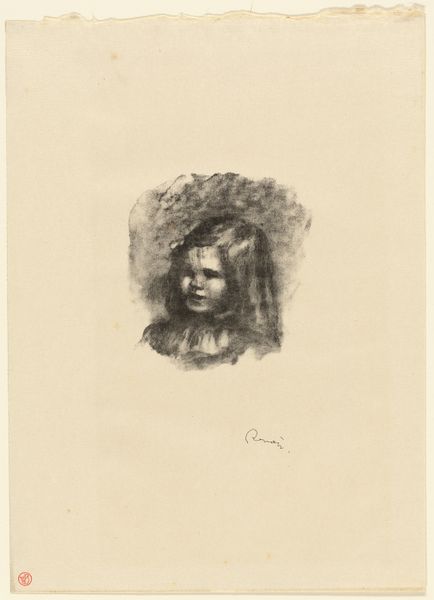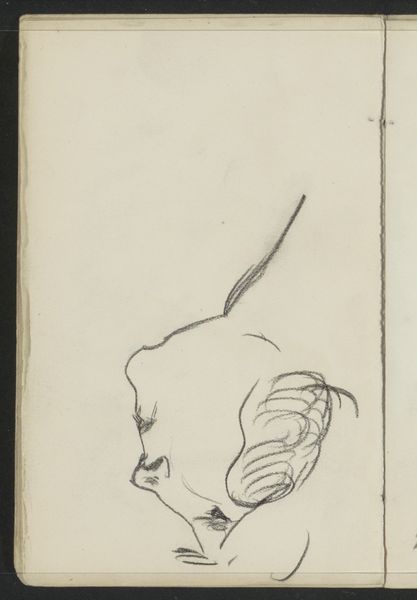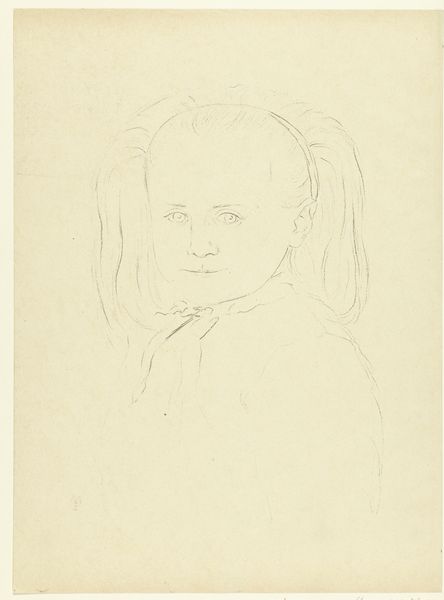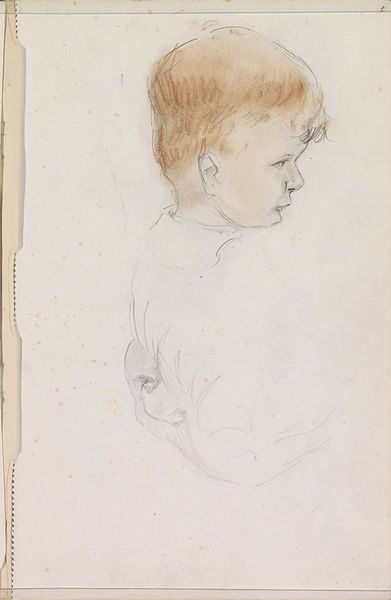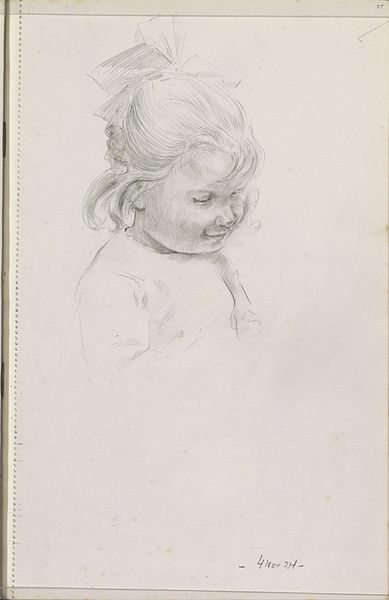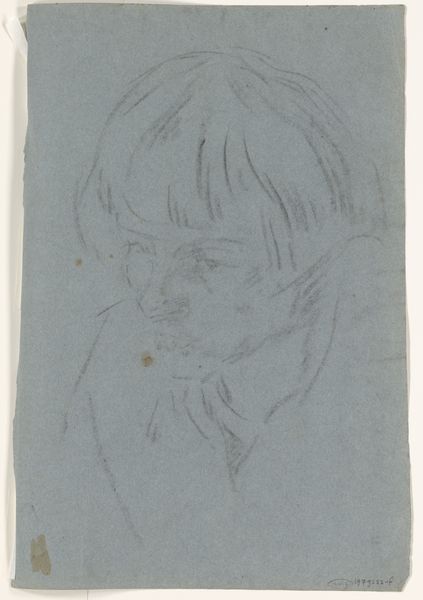
drawing, pencil
#
portrait
#
drawing
#
pencil sketch
#
figuration
#
pencil
#
expressionism
#
monochrome
Dimensions: height 193 mm, width 136 mm
Copyright: Rijks Museum: Open Domain
Editor: We're looking at Edvard Munch's "Portret van Andreas Schwarz," created in 1906, a simple pencil drawing. The subject's gaze is quite intense, and I feel a certain vulnerability emanating from it. What stands out to you? Curator: I see a window into the complexities of childhood, particularly through the lens of early 20th-century societal expectations. The fragility you sense might be interpreted as the imposition of adult anxieties onto a young boy. What does it mean to portray innocence with such stark lines during a time of immense social upheaval and changing perceptions of identity? Editor: So you’re suggesting that the intensity in his eyes might not be inherent, but a reflection of the artist or society at large? Curator: Precisely. Expressionism, after all, often served as a means to project inner turmoil onto the external world. Consider also how the monochrome medium contributes to a feeling of austerity. It strips away any softening elements and forces us to confront the rawness of the emotion. How does this artistic choice impact your understanding of Andreas? Editor: It makes it feel less personal, more universal perhaps? Like Andreas is embodying anxieties felt by many. I never thought a simple drawing could hold so much. Curator: That’s the power of art, isn’t it? To unveil hidden narratives and connect us to broader historical and cultural dialogues. I learned new ways of thinking about Expressionism today.
Comments
No comments
Be the first to comment and join the conversation on the ultimate creative platform.
